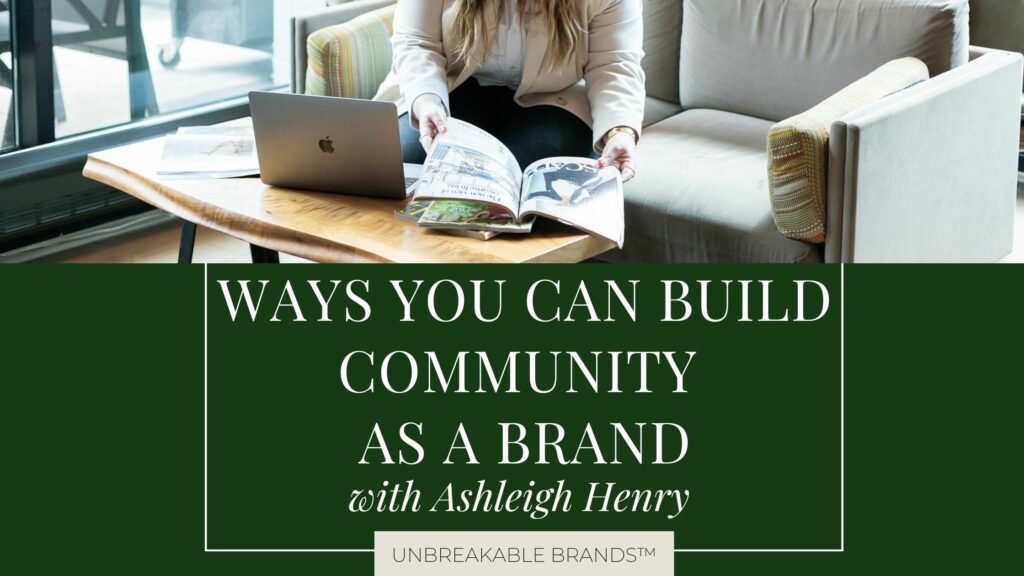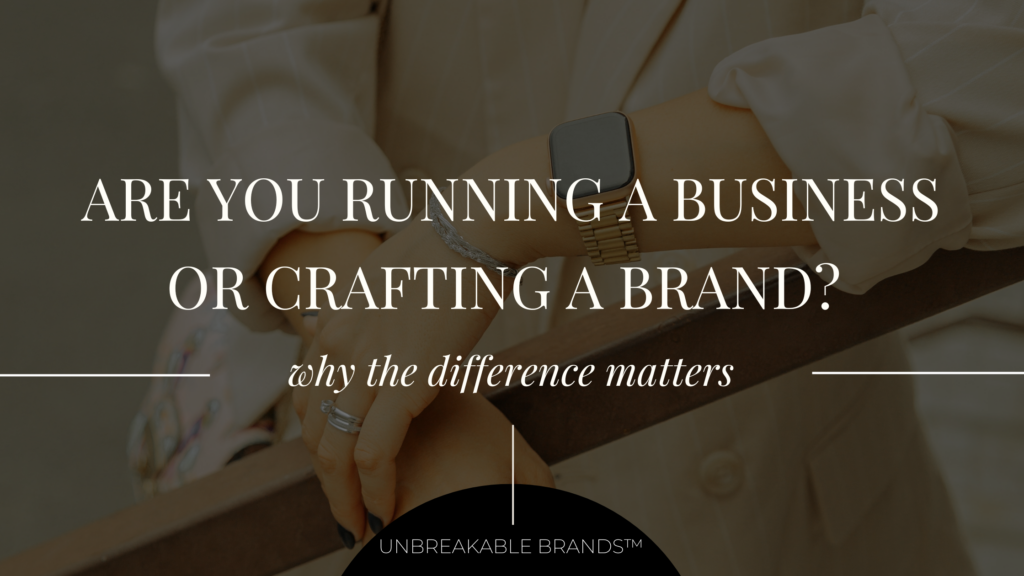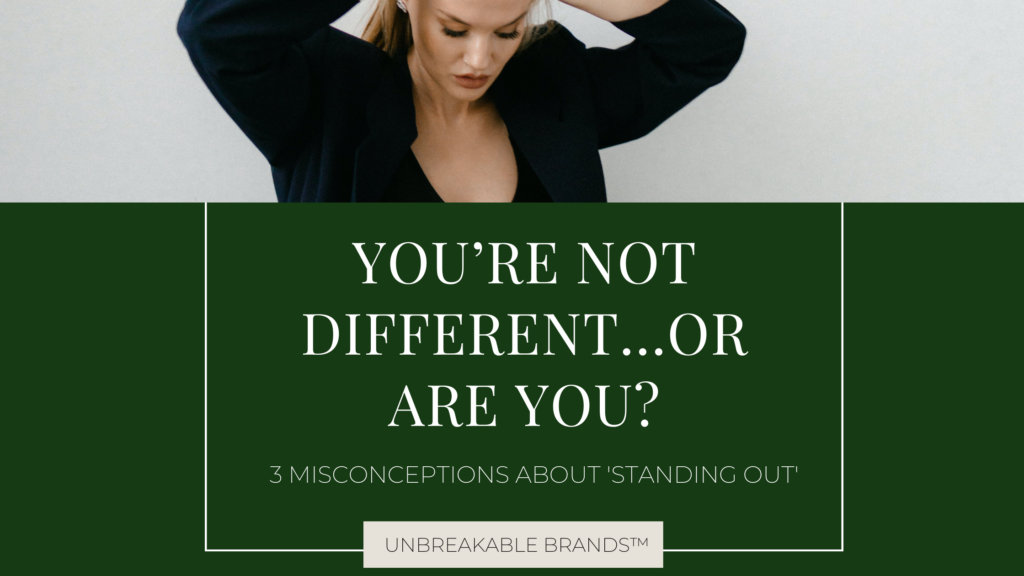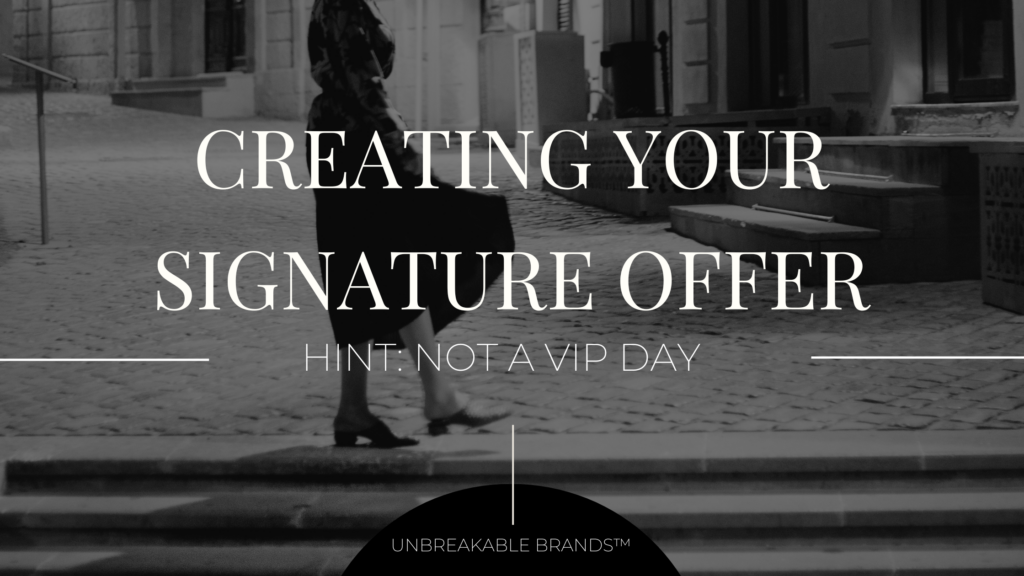I am so thrilled to have Ashleigh Henry on the show to talk about ways you can build community as a brand.
Ashleigh Henry has been in marketing, sales, and leadership positions since she was handed her first paycheck at the young age of 15. She was driving traffic in a well-known shoe store, watching the feet of our entering customers to be able to run sales that influenced said customers to purchase urgently and intentionally.
It was exhilarating for Ashleigh to climb the retail, corporate, higher education, and start-up ladder, holding positions such as Marketing Strategist, Copywriter, Social Media Strategist, Manager, Editor, and Co-Editor…until it wasn’t. Alongside her degree, Ashleigh decided to bring all of her experience into the online business space; she founded The Cheetah Company to serve modern businesswomen through their education, coaching, and consulting services and, in doing so, has helped nearly 100 female founders, nationally and globally, to build timeless and everlasting brands.
Ashleigh is out here killing it, and I am so glad you’re here with us today.
“Empowered isn’t just a brand word. That only half explains a brand and there’s no action behind it.”
– Ashleigh Henry, Marketing & Sales Consultant at The Cheetah Co.
Here’s what you can expect to hear in this episode:
- Why community connection is vital for entrepreneurs building any type of brand
- Ashleigh’s top tips for cultivating community
- Marketing from a perspective of putting humans first
- Navigating the “vulnerability hangover”
- The biggest mistakes or cop-outs when connecting with your community
- How cultivating community impacts the bottom line for brands
- Ashleigh’s perspective on the “family” community vibe
- What community flocks look like for brands
Resources Mentioned In
This Episode
Free Brand Personality Quiz
Unearth your brand personality to stand out. Take the FREE Brand Archetype Quiz!
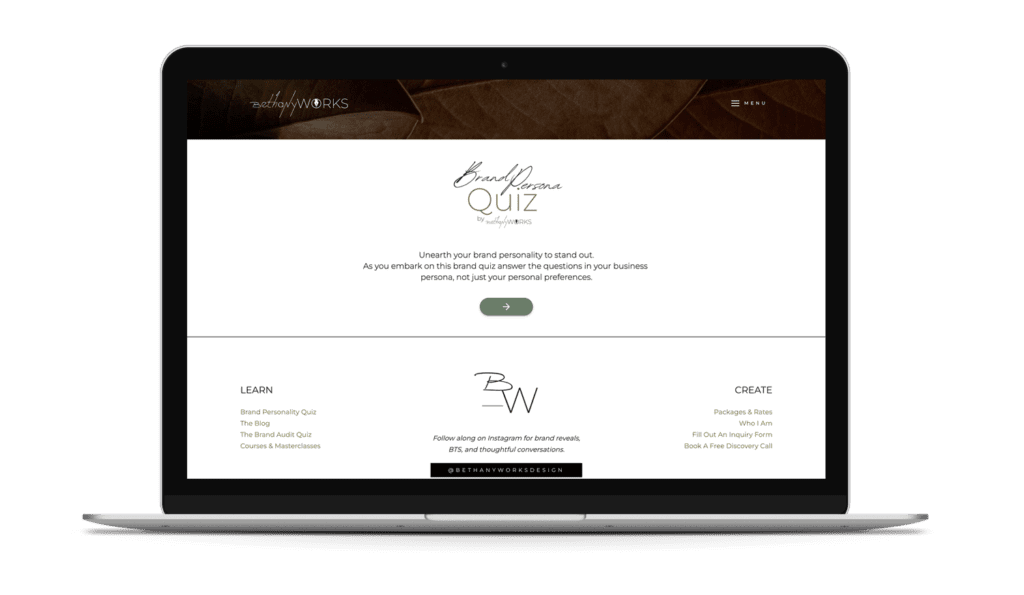
You are so skilled at cultivating community. we may not all be able to hold this space at the capacity you can for others – but why is community connection like this vital for entrepreneurs building any type of brand?
The overall mission of The Cheetah Co, is really just helping women resiliently rise. And For me, that ties back to the fact that I was a survivor of violent crime times two. And just knowing how, how I maybe wouldn’t have flourished after those experiences without community, without women just being like, kind of a tribe around me, a true village feel. I wanted to bring that into every portion of my life.
And so that’s even like, reaching out and saying, like, oh, your dog is struggling. Mine was just struggling because I think, at the same time, our dog had, essentially like, his heart has an extra beat, and he’s very tiny. So every time he got excited, we’re just like, is he going to be okay? And so he’s been on medication for that. And he has one eye, and he’s just like, a little funky dog that just like runs around and gets really exhausted.
And so when I saw your stories about Henry, I was just like, I honestly kind of wish I would have posted about Rifkin to say like, I’m struggling right now. Like this is this is my baby. He’s, he was Chris’s dog first, my husband. And so when I met Chris, I met Rifkin. And he kind of became like my little heart. And so my heart is walking outside of my body that I did not birth because he’s a dog. So just having those like common threads, I was just like, I must reach out to her and see if she’s doing okay.
Helping women resiliently rise really just means like, if they’re in a tough spot, that we’re empowering them in the true sense of the word like, Hey, you can get through this. Hey, you’re doing okay; you have people behind you that are here for you. And we do a lot of what we did with you. I think, overall, I slid into your DMS and made sure you were okay. And then I was like, Do you have Venmo? Can I send you coffee?
Because I had a picture at some point. I think it was an Abraham Lincoln quote that like, if this is tea, bring me coffee. And if this is coffee, bring me tea. And I was just like, you always need kind of a drink in hand to get through tough times. And that’s what I think, How can I possibly make this person over the internet feel like we’re sitting down to have a conversation and that we’re friends in real life?
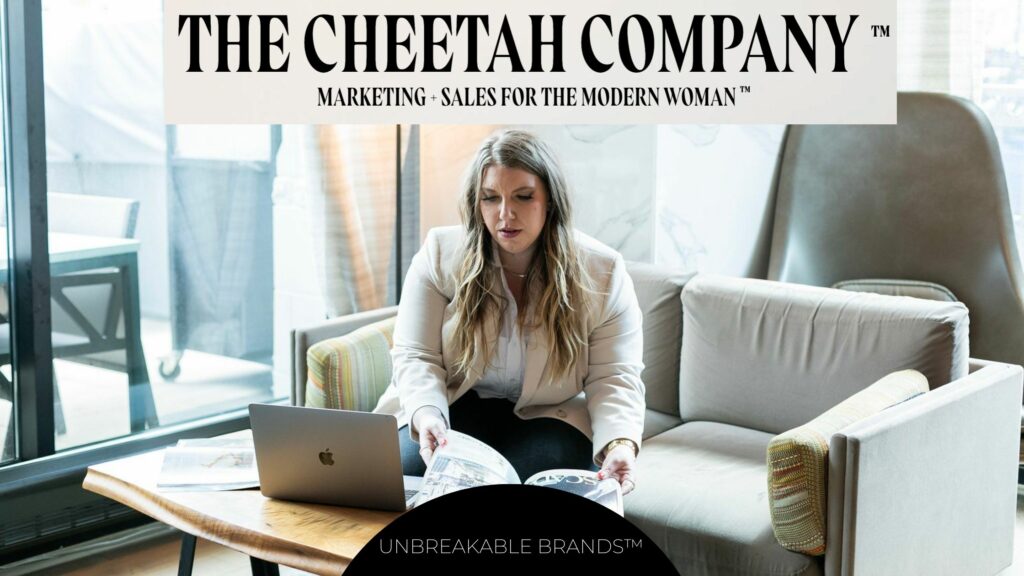
What are your top tips for someone to cultivate community as a brand, one that is grounded, less whiny, and more about the connection?
I wish that was not a pillar or a differentiator of our brand. I wish that was like a standard across all brands for everyone. And what you experience regularly if like, “Hey, how did you get started with your business” like that is a script through and through, and it’s very popular in the online space. And at this point it creates this eye-roll effect.
So we have a course where we teach this. My favorite theory that I learned on the sales floor of Harley Davidson BMW like calling and essentially saving sales, people that came into our dealerships with Harley, BMW, Volkswagen, we would call and say like, hey, we noticed that you didn’t purchase we want to check in and see how your experience was.
And essentially, we move into what was called probing and pre-selling with a theory called the Ford Theory that we all kind of like customized and created on the sales floor. Here are four different sectors that we can talk to any human about at any time that is going to create some kind of common ground and connection. So Ford stands for Family, Occupation, Recreation, and Dreams.
So essentially, when I slid into your DMS, I was talking to you about family, like your family is not doing okay? Then the village needs to surround you with what’s going on. And most people start with occupation and the online space because they think that’s the connector, but occupation should be the last thing that we talked about.
And it should be kind of like a mentioning, Hey, I saw on your website, like I did with you. And I saw on your website you used to be an educator. Can you tell me more about that? Like, how did you get here from there? But also, I can see it because you have such a coaching, educator hat on constantly when you’re sharing content.
So it’s almost going around those four pillars and considering, like, could the other person on the other side think of this as a script? How can I make this conversational? I kind of think of, like, a cocktail hour, or we’re sitting across from each other at a coffee shop, just like, envisioning that, generating that feeling. And then using that thought of how can I create that in conversation is where we teach from?
you have such a great approach to teaching marketing from a perspective of putting humans first. So what would you say to the people who are avoiding it altogether and feel super nervous about it?
We all have to start somewhere. And so at some point, I was on the sales floor at 18, I did some dumb things, and said some dumb stuff. But ultimately, I learned from that, and anything that I could maybe call dumb isn’t actually that much just human, we’re just like trying our best. And when we try to connect, I still think that intention and that energy is felt.
So ultimately, if you are going into the DMS and kind of having an intention to talk about occupation first because maybe it feels safe. Even that can be okay, as long as you’re generating the feeling on the other side inside of you, which creates a great salesperson and an attractive brand to be marketed towards I just want to have a conversation.
I just want to open up this energy and let it be like, just connection. Just allow it to be connection folks can definitely sniff like desperation. So if you come from a place of connection, it’s like, okay, if you’re not in the DMS yet.
The biggest thing I would suggest, especially since I’m an extroverted introvert, is that most people assume I’m an extrovert because that’s my push online, that I actually really fill myself up with nature-quiet books, just like diving deep into the imagination. The best way that someone on either side of the spectrum, no matter where you kind of label yourself or put yourself in, if there’s a way that you can create a circle of ecosystem where someone feels like they’re kind of surrounded by you, but not necessarily overwhelmed by you, that’s a good thing.
So a way to do that would be to follow the person that you want to work with, potentially follow some of their top parallel connectors that you see they’re having conversations with maybe tagging each other in. =This is not just specifically for Instagram by any means, Facebook groups, LinkedIn groups, LinkedIn.
Then taking a step further, if you’re not ready to get into the DMS responding to some of their content, the usual like couple of likes here meaningful content or comments, for several times a week, for a long amount of time. I would say that what we’re kind of staring down economically, we’re seeing conversion rates jump from 90 days to 120.
Just being really, accountable on time, consistency, and connection. This surrounding of the ecosystem is the next step of going to their website signing up for their email list. Now you’re in an exclusive conversation with them. Whenever you respond to their emails, you’re now, emailing back and forth with this potential client or collaborator.
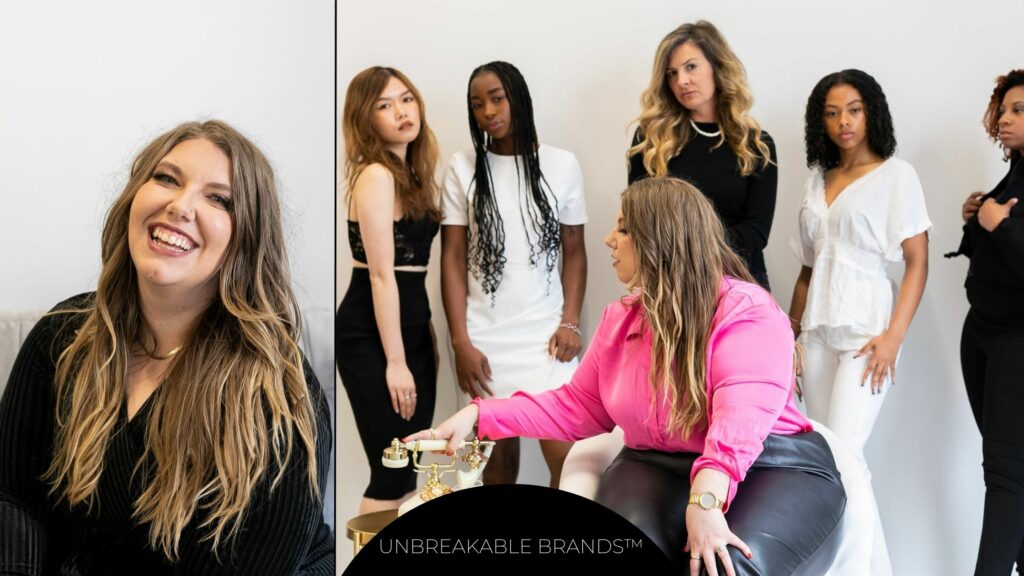
As people are opening up more and reaching out to their clientele, How do you navigate that “vulnerability hangover,” as Brene Brown says?
It is a lot. Cymatics are my favorite place to go deep with breath work, meditation prayer, every Friday before I end my day, I’m like, journaling a time, and if you’re not a journal or an audio journals, fine. Something to get it out of your, headspace to go back and like self analyze a lot. That’s a good skill to have as a CEO and founder, but we can definitely take it to a higher spectrum of like, did I look a certain way it was I perceived this way.
So I really like to sit and think, where am I feeling this vulnerability in my body? Is it in my chest? Is it in my throat, my stomach, and I just focus on that physical feeling? To try to help it get out to have a space to just like, have a presence with it, have a moment with it, and help it calm down—very nurturer kind of setup, you know, almost mothering yourself or parenting yourself.
Then letting the words come out in audio or journal of like, okay, this felt like kind of an intense week, maybe I overdid it and my energy and connection. Can I slim down the amount of time that I do it? Can I turn off my notifications and set up a specific time when I do it? Time blocking for me is extremely helpful.
Then having those practices where I’m like, okay, I can lean on that. I don’t have to focus on like being embarrassed right now. Because I’m not a perfect conversationalist. I’ll, at some point, do something that’s a little awkward. And that I think, awkwardness is a beautiful thing, as a human. We don’t have to be perfect, and all put together just because we’re CEOs and founders.
I often see people put up a poll asking how people are feeling as if that is all you need to build a community. What are some of the big mistakes or cop-outs when it comes to connecting with community?
My next question would be, hey, did you message every person to say, I’m so glad you’re feeling great today? What’s got you going up? Like what’s happening on a Tuesday? And we usually put a couple of like, positive pieces in a poll, like how are you feeling? And then we always put, do you need a pep talk or like, need a pep talk, click here. And we get a lot of clicks for pep talks.
Women founders are so incredible. A lot of them are breadwinners; a lot of them have to put on that masculine forward piece. No one’s really asking them how they are, truly caring and making sure that they are actually feeling empowered. Empowered isn’t just a brand word that only half explains the brand and there’s no action behind it. That’s what I would say, depending on what your brand profile is and where you’re coming from.
For us, we’re very passionate, we’re expressive, we’re gonna go out and like, if there’s 99, and we’re missing the one, we’re gonna go find the one and make sure they’re doing okay, that matters to us. And if it doesn’t matter to you, and maybe you’re like, a bit more of a prestigious brand or mysterious brand, that’s totally okay.
But at some point, you’ll still have to connect with people on a real level. I would say that’s where I see it the most is like prestigious brands becoming so unapproachable and disconnected. By remaining mysterious and just like behind this curtain that folks will start to fall out of love with it.
At first, it’ll be like, interesting, and ooh, I’m in suspense. But I feel like that’s a cop-out with branding, to not care about people and take a step forward and, and be approachable enough to have leadership while having, I would say, friendship. If you are treating your community like they’re an audience, that becomes voyeuristic.
If you’re treating them like a community, it becomes tribal; it becomes a village. So cop-outs, I would say, hiding behind the curtain, not being approachable, never asking how someone else is, and always wanting the attention, spotlight, and voyeuristic view of you.
How does this cultivating community impact the bottom line for brands?
I feel like just the overall future is getting shifted more and more with AI technology. We can really lose this personality, this piece of conversation, this community effect. Of course, there are so many gains to AI; we love AI, but was really focusing on community; your bottom line changes in ways that you can’t even expect.
So for example, we’re launching a retreat in September, we haven’t done a full launch for it, but because we have such a strong community online, folks are coming in paying in full and they’re ready to go. I think that has been the most obvious piece for me to say, community definitely is here. If we can help people for three years online, and now they want to come and sit down with us in person, that’s life-changing.
So thinking about how the community you’re creating right now may, at some point, want to be with you in person or have more of an exposure to the brand on a tangible field beyond the online space. That’s just where the future is going. We want to sit down, we want to break bread, and we want to have time together for marketing and money.
That’s why I say, bless the brand strategists of the world, because we cannot, we cannot like we have to end up building brands while trying to market while trying to create sales processes and just restructure the business usually. That is difficult, like we do it. But it’s definitely difficult because we would rather someone come in with branding guidelines that we can say like, you spent hours with an expert, and now we can build off of this; people have to go to you first, in my personal opinion, to have great marketing, I think you can have good marketing.
You could start, I don’t think it should hold you back by any means. But I do think that having a brand just elevates because it’s an obvious promise from the outside of this is who we are, this is what we do money connected to marketing, you’re only going to be able to get as many people into your offers and into your suite, to receive money from them and impact them through your service or product, you’re only going to be able to do that so far is the way that you can articulate your value through marketing. And so that’s where I think working with a brand strategist really comes into play.
My pet peeve is calling your community “family.” I think it blurs a boundary line, as if there are no rules and you would do anything for them. What is your perspective on that?
Being in startups, higher education, and corporate, I fully agree with you. I mean, you could just hear it, “we’re all a big family here.” It is like; I’m always on call. I understand. I love boundaries. I think boundaries are the sexiest thing that any person can have. But especially a modern business woman who wants to have a life outside of business.
I think for modern businessmen too, but for focusing on female founders here, which is predominantly who we work with. It’s just It’s insane how the spectrum has shifted from, you know, maybe 50, 60, or 70 years ago of women don’t work as often and they’re at home. They’re taking care of the children, home rearing, and child-rearing. Now we have swapped to this other side of the spectrum of; she’s kind actually working, she’s always on her phone, she’s always on her laptop… and that gives me the ick as well.
I want us to have a true holistically harmonious life and business without boundaries and creating a space where our peers, colleagues, and professionals in one room supporting each other to accelerate the growth of their brands. That’s what we’re doing here. It’s not necessarily family; there’s some feeling family feelings, maybe friendship feelings, village feelings.
What do community flocks look like for brands?
I like to put anything that’s in the online space that could feel like rejection or validation, a perception of approval into physical craft. Let’s imagine we were at a conference, and you’re literally locking the door saying like you, oh, can’t leave, you’re my community. Cops would be called; that’s very strange. So I hope that like makes the listener that’s listening smile.
But just remembering that’s essentially what we’re doing when we’re like, no, my community can never change. And my close day ones, from regular friends to business friends, to colleagues and peers, can never change, you’re going to outgrow each other at some point, or you’re going to grow in separate directions. And that’s okay.
I’ve seen a lot of polarizing content and overall, perspective-shifting content; some people are not ready for the perspective shifts that you’re trying to bring. And it’s just okay, don’t lock the door to the conference room. Let them go.
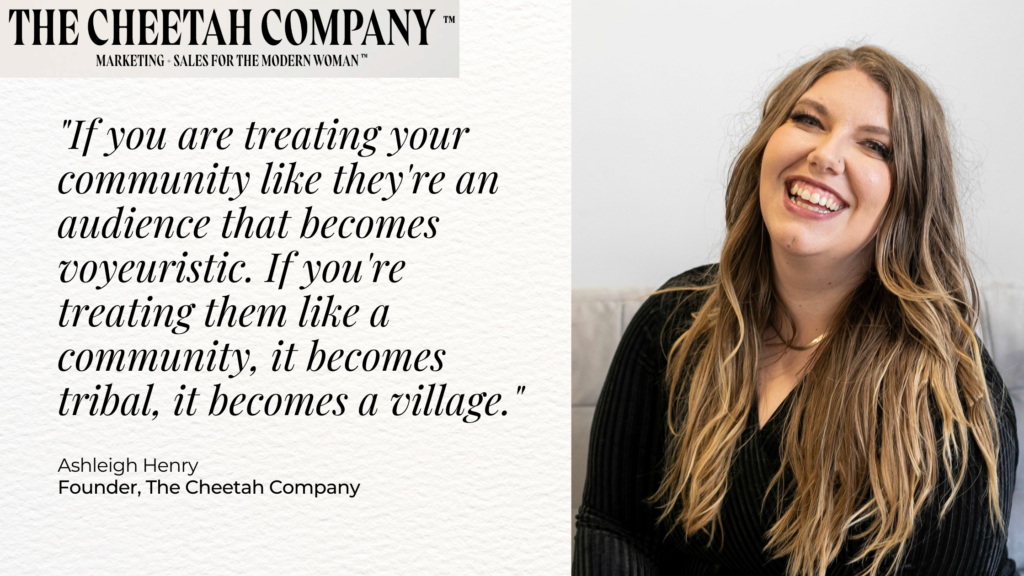
Ashleigh Henry bio
Ashleigh Henry has been in marketing, sales, and leadership positions since she was handed her first paycheck at the young age of 15. She was driving traffic in a well-known shoe store, watching the feet of our entering customers to be able to run sales that influenced said customers to purchase urgently and intentionally by way of the promotions she was running based on…them.
It was exhilarating for Ashleigh to climb the retail, corporate, higher education, and start-up ladder holding positions such as Marketing Strategist, Copywriter, Social Media Strategist, Manager, Editor, Co-Editor…until it wasn’t.
Alongside her marketing degree, Ashleigh decided to bring all of her experience into the freelancing world until it became clear that she didn’t just want to pay the bills – she wanted to create a company that was foundationally built on cheetah print, legacy-minded marketing, and sexy sales structures that could stand the test of trend and time.
The Cheetah Company, founded by Ashleigh, does this for female entrepreneurs through their education, coaching, and consulting services.
Since its genesis, The Cheetah Company has helped nearly 100 female founders, nationally and globally, to shift the way they approach their marketing and sales structures, to be focused more on the traditional elements that have worked for centuries while conceptualizing trendsetting pieces into their strategies without fear.
The Cheetah Company has supported female entrepreneurs seeking to move their brick and mortars’ into the online marketplace, scale their current businesses, or add new arms to their already profitable and existing businesses to move from four-figure months to five to six to multi-six and even to seven figures.

